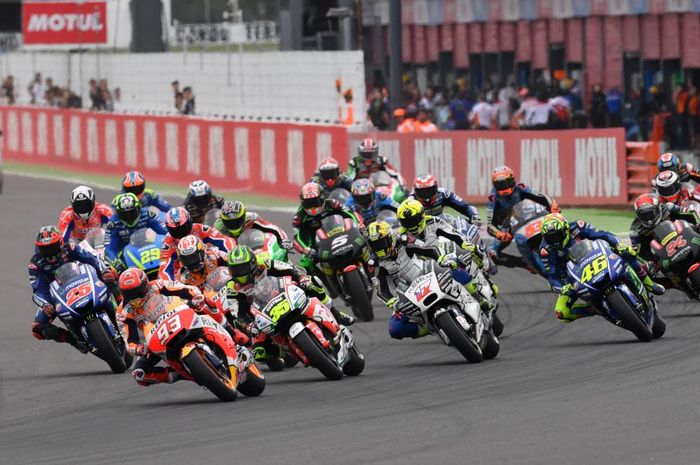Has Armando Iannucci Lost His Touch? Analyzing His Creative Trajectory

Table of Contents
The Iannucci Formula: A Deconstruction of His Signature Style
Iannucci's signature is unmistakable: a potent blend of satirical comedy and dark humor, delivered through rapid-fire dialogue and a cast of hilariously incompetent characters. His works are not mere comedies; they're incisive critiques of power, exposing the absurdity and corruption often hidden beneath polished political facades. This "Iannucci formula" comprises several key ingredients:
- Fast-Paced Dialogue: His scripts are renowned for their verbal dexterity, with overlapping conversations and witty insults creating a frenetic energy that mirrors the chaos of the political world.
- Cynical Wit: Iannucci's humor is rarely gentle. It's sharp, biting, and often darkly comedic, highlighting the flaws and hypocrisies of those in power.
- Chaotic Characters: His characters are rarely heroic; they're often flawed, self-serving, and hilariously inept, making their struggles all the more entertaining.
- Satirical Portrayal of Power: Underlying the humor is a powerful critique of political structures and the individuals who navigate them. Themes of political corruption, incompetence, and the sheer absurdity of power dynamics recur throughout his work.
Examples abound: Malcolm Tucker's volcanic rage in The Thick of It, Selina Meyer's desperate clinging to power in Veep, and the catastrophic blunders in In the Loop all exemplify this signature style.
The Peak Years: The Thick of It, Veep, and In the Loop
These three projects represent the pinnacle of Iannucci's career, achieving both critical acclaim and substantial commercial success. The Thick of It launched him into the stratosphere, showcasing his unique ability to craft hilariously realistic depictions of political spin and manipulation. Veep, with its Emmy-laden run, cemented his status as a comedic powerhouse, creating iconic characters and delivering unforgettable scenes. In the Loop, his feature film debut, successfully translated his television style to the big screen, demonstrating the adaptability of his approach. These successes were built on several pillars:
- Strong Characters: From the foul-mouthed Malcolm Tucker to the perpetually flustered Selina Meyer, Iannucci's characters are complex, multi-layered, and utterly captivating.
- Sharp Writing: His scripts are densely packed with witty dialogue, memorable lines, and perfectly timed comedic moments.
- Unique Comedic Tone: The blend of dark humor, political satire, and chaotic energy established a distinct comedic voice that resonated with audiences worldwide. Awards, box office success, and iconic quotes all stand as testaments to this period's impact.
A Shifting Landscape: Analyzing Iannucci's Post-Veep Work
While The Death of Stalin and Avenue 5 showcased Iannucci's continued ambition, their reception has been noticeably more mixed compared to his earlier successes. The Death of Stalin, a dark comedy about the aftermath of Stalin's death, received praise for its satirical wit but faced some criticism for its historical accuracy. Avenue 5, a space-tourism comedy, suffered from inconsistent reviews, struggling to capture the same critical acclaim and audience engagement as his previous projects.
Potential explanations for this perceived shift include:
- Change in Style: The shift to film, particularly with The Death of Stalin, may have necessitated a different comedic approach than his earlier television work.
- Different Subject Matter: The subject matter of Avenue 5 marked a significant departure from the political sphere, potentially impacting audience expectations and critical reception.
- Audience Expectations: The phenomenal success of Veep set a high bar, making it challenging for subsequent projects to meet the same level of acclaim.
Despite these challenges, Iannucci's post-Veep work still exhibits creative risks and stylistic evolution, showcasing a willingness to experiment and explore new avenues within the realm of satire and comedy. The box office performance and critical reception of these later works highlight the complexities of maintaining consistent success in the ever-evolving television and film landscapes.
Has Iannucci Adapted to Changing Times?
The media landscape has shifted significantly since the peak of Veep's success. The rise of streaming services, the fragmentation of audiences, and the evolving political climate all present unique challenges for contemporary satire. Has Iannucci successfully navigated these changes? His later works suggest a continued effort to adapt, but the results have been inconsistent. Maintaining cultural relevance and connecting with a modern audience requires ongoing innovation and a keen awareness of the contemporary political climate. The question remains whether his approach has evolved sufficiently to resonate with audiences and critics alike in this new era.
Conclusion: Re-evaluating Armando Iannucci's Legacy
This exploration of Armando Iannucci's creative journey reveals a complex picture. While his earlier works, The Thick of It, Veep, and In the Loop, stand as cornerstones of modern political satire, achieving unparalleled success and critical acclaim, his more recent projects have yielded mixed results. Whether this represents a decline in quality or a natural evolution is a matter of ongoing debate. The enduring impact of his earlier work remains undeniable, establishing a legacy of sharp wit, darkly comedic brilliance, and insightful social commentary. But what of the future? Will Iannucci continue to refine his craft, adapting to the changing times and reclaiming his former heights? Or will the creative trajectory continue in this more inconsistent direction?
We encourage you to share your thoughts: Has Armando Iannucci maintained his creative genius? Is Armando Iannucci's creative trajectory a decline or evolution? Join the discussion and let us know your perspective on this important question in the comments below.

Featured Posts
-
 Jrymt Mrwet Fy Frnsa Tfasyl Jdydt Hwl Qtl Afrad Alasrt Wdfnhm
May 26, 2025
Jrymt Mrwet Fy Frnsa Tfasyl Jdydt Hwl Qtl Afrad Alasrt Wdfnhm
May 26, 2025 -
 Mathieu Van Der Poels Stunning Canyon Aeroad Tirreno Adriatico Race Bike
May 26, 2025
Mathieu Van Der Poels Stunning Canyon Aeroad Tirreno Adriatico Race Bike
May 26, 2025 -
 Hamiltons Impact The New Formula 1 Regulations Explained
May 26, 2025
Hamiltons Impact The New Formula 1 Regulations Explained
May 26, 2025 -
 Jadwal Moto Gp Argentina 2025 Catat Waktu Sprint Race Minggu Dini Hari
May 26, 2025
Jadwal Moto Gp Argentina 2025 Catat Waktu Sprint Race Minggu Dini Hari
May 26, 2025 -
 Sse Announces 3 Billion Reduction In Spending Plan
May 26, 2025
Sse Announces 3 Billion Reduction In Spending Plan
May 26, 2025
